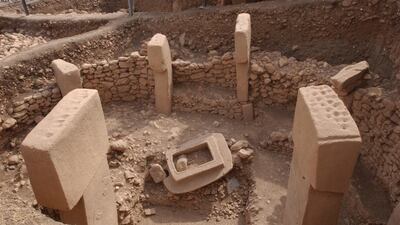Research has revealed societies in the Mediterranean adapted and even thrived amid climate change, but began to collapse when other disasters such as war and plagues hit.
Researchers from the US, UK and Europe examined almost 400 settlements in Anatolia, which is now modern-day southern Turkey, for the study that they say offers a warning for today's climate emergency.
They found that the region had a major increase in human settlements and agricultural output in the 5th century when conditions became drier, seemingly dispelling the popular belief that the population boom was due to a long period of wetter weather.
But the initial boost lasted little more than a century as the climate failed to improve and the region was hit by disasters such as conflict, earthquakes and pandemics.
Dr Matthew Jacobson, an archaeology lecturer in the Glasgow’s School of Humanities and one of the study's authors, said he believed his research has "scary" parallels to modern times.
But Dr Jacobson said it was too simplistic to say that "when the climate goes bad, bad things happen to people and society declines".
"We see settlement numbers and agricultural productivity skyrocket during the Roman period, when conditions were much drier in south-western Anatolia, he said.
"We also see people initially adapt to a significant shift to dry conditions in the 5th century but start to struggle around a century later, as the climate doesn’t improve and the region is hit by the plague, as well as numerous earthquakes and wars.”
Dr Jacobson said the swing in fortunes brought "good and bad news" for the modern era because it suggested we could overcome anthropogenic climate change, "but only if we act to reduce its influence and keep on top of other disasters".
"There are scary parallels to recent events considering our increasingly unstable climate, ongoing pandemics and current conflicts."
But he said he remained hopeful that humanity could learn from these historical examples to build resilient societies that became stable.
Researchers examined more than 381 settlements in Lycia-Pamphylia in south-west Anatolia, a region they say is rich in archaeological remains including cities, harbours and rural settlements.
The academics were able to interpret the changes in settlement populations by examining regional history, archaeological evidence and paleoenvironmental data.
They also looked at six historical periods from the Bronze Age (3000 to 1150 BC) to the Middle Byzantine period (600 to 1050 AD).
The research was conducted by academics from University of Glasgow, the University of Georgia, the University of Southampton, the University of Basel and Trent University in Canada.


